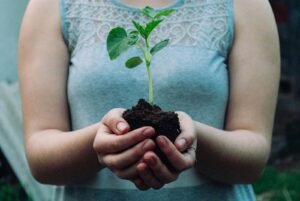For millions of people worldwide, especially women, diaspora is much more than relocating to a new city or country.
It is a complex experience of belonging to more than one place at once, carrying multiple cultures, identities, languages, and responsibilities across borders.
Today, diaspora refers to people who have left their homelands—whether by choice or necessity—yet remain deeply connected to where they come from. This connection shapes how they live, give, and grow, often in ways that go far beyond geography or economics.
These aren’t generic tips. They are rooted in real-life wisdom from women who’ve made big life leaps, reinvented their lives and continued to rise.
A Global Tapestry of Diaspora Communities
Diasporas are rich, varied, and present everywhere:
- The Filipino diaspora includes millions working as care workers in Europe, seafarers in the Middle East, and tech professionals in North America. Their remittances support families back home, but more than that, these acts are filled with love, moral commitment, and hope for a better future, often involving personal sacrifice.
- The African diaspora’s story spans centuries, from forced displacement through slavery and colonisation to contemporary migration for education and work. Communities thrive in cities like London, Paris, and New York, nurturing cultural pride while pushing for justice, equity, and recognition.
- The Latin American diaspora includes people from Mexico, Colombia, Venezuela, and beyond who have sought opportunity, safety, or stability in Europe or the U.S. Despite distance, they remain deeply connected to their roots—organising cultural festivals, engaging in activism, and sustaining families across borders.
- The South Asian diaspora (India, Pakistan, Bangladesh, Sri Lanka, Nepal) is widespread and influential. Indian communities in the U.S., Canada, the UK, and beyond build cultural, business, and political influence abroad. Pakistani communities maintain strong ties through remittances and cultural traditions. These groups build places of worship, send money home, and remain politically engaged with their countries of origin.
- The Chinese diaspora is one of the oldest and most economically rooted. From Southeast Asia to North America and Africa, Chinese communities establish businesses and cultural enclaves, supporting relatives through remittances, education sponsorships, and investments.
Are there diasporas in the EU or the US?
Diaspora is often framed as “Global South to Global North,” but there are also EU and U.S. diasporas, especially when people migrate or live abroad and maintain strong ties to their home culture.
- Examples:
- Large communities of British expats in Spain or Germans in South America still participate in cultural associations and maintain close ties.
- American diaspora communities (especially among second-generation immigrants or people living abroad for work, study, or marriage) also maintain identity and political involvement from overseas.
- Some of these are not always economically displaced, but they still form cultural, political, or economic diasporas.
So Why Aren’t some They Always Highlighted?
- Narratives of diaspora often center around economic remittances and labour migration, which has historically involved countries in the Global South.
- Power dynamics—Western nations are often the “receiving” countries in these narratives, so their own diasporas get less attention.
- In public discourse, the emotional and identity-based aspects of diaspora are often overlooked in favor of economic frames.
Diaspora: Both an Emotional and Political Experience
At its heart, diaspora is deeply emotional. It embodies:
- Belonging and identity: The feeling of being connected to more than one place—belonging fully neither here nor there.
- Longing and love: The ache of separation from family and culture, balanced by enduring love that sustains connection across distances.
- Resilience and sacrifice: The strength to build a new life amid challenges while supporting loved ones back home.
- Hope and responsibility: The vision for better futures, not just for themselves but for entire families and communities.
- Complexity and tension: The balancing act of integrating into a new society while preserving cultural heritage, navigating emotions ranging from pride to guilt, joy to homesickness.
But diaspora is also profoundly political:
- Power and rights: Diaspora communities must navigate immigration laws, voting rights, and citizenship policies in both home and host countries.
- Economic influence: Remittances and investments from diaspora populations significantly shape national economies, influenced by global inequalities and political decisions.
- Representation and activism: Diaspora groups often organise to push for political change, social justice, and cultural recognition.
- Nation-building and exclusion: Governments may engage or exclude diaspora communities strategically, sometimes celebrating their role but neglecting their rights or needs.
- Intersectional challenges: Migrant women especially face political obstacles linked to gender, race, class, and migration status that affect their access to protection and opportunities.
Why Diaspora Feels Different for Women
Women in diaspora carry unique experiences marked by care, expectation, and often invisibility. They are often the silent backbones of transnational families—the caregivers managing crises from afar, sending money home, juggling parenting, studying, and working multiple jobs simultaneously. This “double duty” of local and transnational care is rarely acknowledged in policies.
Migration systems frequently limit women’s access to healthcare, stable jobs, or social benefits. Meanwhile, the emotional weight of “making it” abroad carries guilt, cultural pressure, and the responsibility to provide, even when their own needs are unmet.
Yet women in diaspora are also builders and leaders. They launch businesses, raise globally minded children, fund education back home, and advocate for change across borders. Their contributions are not just sacrifices; they are acts of leadership, innovation, and solidarity.
At WEMatter, we believe these experiences deserve to be heard, not as footnotes to economic statistics but as central stories of resilience, wisdom, and strength. When women in diaspora thrive, entire families and communities flourish.
A Call to See—and Support—Women in Diaspora
Diaspora is more than a matter of geography. It is emotional labour, financial responsibility, and cultural negotiation. It is the daily balancing act between presence and distance, roots and flight.
For many women, it is invisible work done across borders—unpaid, uncounted, yet deeply impactful.
At WEMatter, we advocate for a fundamental shift: from romanticising remittances to recognising the real cost and immense contribution of migrant women.
So let’s ask:
- What systems do we need to build to support the women who give so much?
- How can we move beyond seeing diaspora as charity toward viewing women as strategic, dignified co-creators of change, even cultural disruptors?
- And how can we ensure rest, joy, and protection—not only responsibility—are part of the migrant woman’s story?
We need more than gratitude.
We need policies, platforms, and narratives that centre the lived realities of diaspora women, not as symbols of sacrifice, but as agents of transformation.
Because women on the move don’t just send money.
They send hope, build futures, and weave belonging across the world.
They introduce new ideas, reshape values, and influence culture—not only where they live but also when they return home.
Let’s make sure they are truly seen, supported, and celebrated.
🤝 Collaborate With Us
Are you working on solutions that uplift migrant women, financial literacy, or diaspora empowerment? We’re always open to meaningful partnerships. Let’s build impact—together.
📬 Email us at info@wematterglobal.com to start the conversation.
👍 Like What We Do?
If this resonates with you, give us a like, share with your network, and spread the word. Every bit helps to amplify women’s voices across borders.
📲 Follow Us
Stay inspired and connected.
🔗 LinkedIn: https://www.linkedin.com/company/wematter-spain
🔗 Facebook: https://www.facebook.com/groups/wematterplus
🔗 Website: https://wematterglobal.com/
Together, we are stronger. Together, WEMatter.





